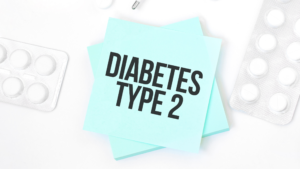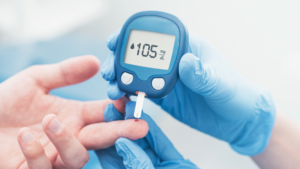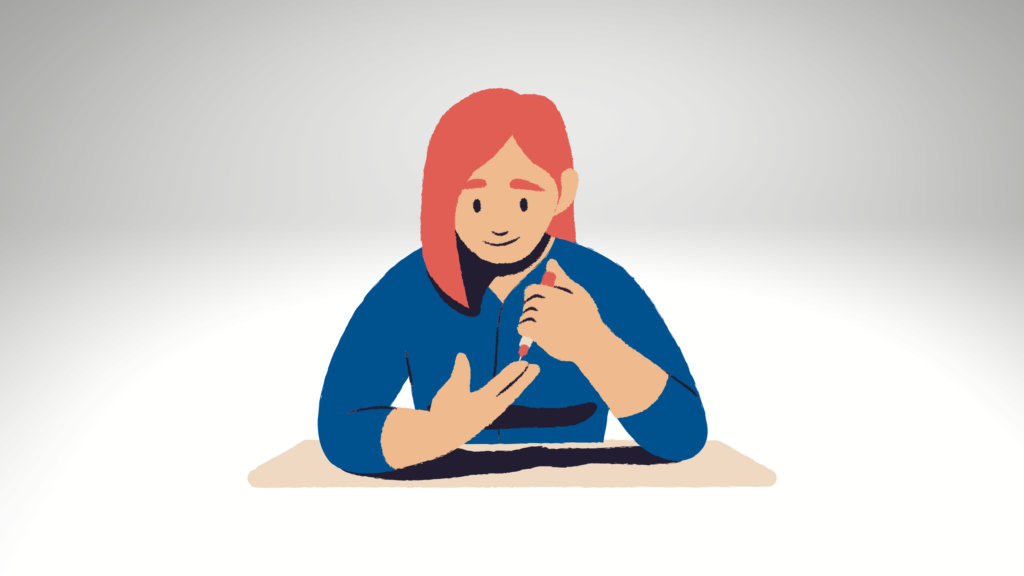What the hell is diabetes?! There are a lot of people on the internet who talk about diabetes, insulin resistance, etc. Like A LOT. Like to the point that it makes me nauseated. Everyone talks about how it is due to sugar and processed foods, the fact that you are fat, or that you don’t expose your testicles or butt hole to the sun enough. Yes, you read that right. These are becoming the latest health trends of 2022. God, I hate our society sometimes.
There are many so-called experts spouting off information, not really telling you what is going on; they are also likely just trying to make a sales point as to how their bullsh*t product, diet, or sun tanning technique is going to solve the problem.
So today we are going to talk about what diabetes actually is. More specifically, I am going to focus on Type 2 Diabetes. I am sure you have heard of Type 1 Diabetes but did you know there are other types of diabetes such as Type 3c and LADA?! Ya, we could write a whole book on the variations of diabetes; unfortunately, that is not today’s goal.
Type 2 Diabetes is the one that people most commonly refer to and is usually associated with obesity and other lifestyle factors. As well, its onset tends to occur later on in life.
So, what is Type 2 Diabetes?
 Type 2 Diabetes (from here on out I’ll refer to it as T2D as I am already tired of typing it out), is a chronic and progressive disease that involves a supply and demand issue when it comes to blood sugar levels. It is largely driven by genetics ie. If your parents or immediate family members had diabetes there is an increased risk you will get it too. Other factors that may also influence it to include a sedentary lifestyle, consumption of highly processed foods, growing up and continuing to be in stressful life situations, and weight gain.
Type 2 Diabetes (from here on out I’ll refer to it as T2D as I am already tired of typing it out), is a chronic and progressive disease that involves a supply and demand issue when it comes to blood sugar levels. It is largely driven by genetics ie. If your parents or immediate family members had diabetes there is an increased risk you will get it too. Other factors that may also influence it to include a sedentary lifestyle, consumption of highly processed foods, growing up and continuing to be in stressful life situations, and weight gain.
A lot of internet experts will say you developed diabetes because you are fat, which doesn’t really tell the whole story. Yes, obesity and diabetes seem to be closely linked together but at the same time, 90% of the individuals that have T2D also have obesity, whereas only ~20% of the individuals with obesity have T2D.
Further, the type of fat and where the fat is distributed may play a larger role in T2D development than just being fat itself. Yes, when people lose weight this can play a big role in managing blood sugar levels and even put diabetes into remission, however, we still have a chicken or the egg question.
When you set out to lose weight you aim to be in a calorie deficit and increase your activity levels. So did your blood sugars come under better control because you lost weight? OR, is it because you started to engage in the actions of eating less and moving more? In my opinion, we haven’t fully teased out what the answer is and as with many things in the body, there is likely a much more complex interplay involved than simply this or that.
Can you talk more about blood sugar levels?
 Yes, we need to review a few things from biology!
Yes, we need to review a few things from biology!
First off, blood sugar. We obtain sugar from the food we eat; our liver can also produce the necessary sugar we need when we go for long periods without eating. Your blood is continually transporting sugar or glucose around your body to your various cells so that your cells can do the cell things and keep you alive. You can think of blood sugar as the fuel for your body.
Now if our blood sugars are too low we can die, kind of like when your car stops running when you run out of fuel. If our blood sugars are too high we can also die. It just takes a lot more time, and there are other complications that generally arise beforehand. This is often our main concern in individuals that have T2D.
Now in order for our cells to actually take up and use the sugar in our blood, we need a hormone called insulin. Insulin is produced by our pancreas. I like to think of insulin as a key that opens the door to your cells and allows sugar to flow from your blood to the inside of your cells. In individuals that don’t have diabetes this whole insulin, blood sugar system and such is very tightly controlled and regulated so that your sugars don’t go too high or low. Again, avoiding death is the goal here.
So what happens in Type 2 Diabetes T2D?
 When it comes to T2D one of the first things that occur is called insulin resistance. It is exactly what it sounds like. Our cells become resistant to insulin. With the key analogy, your cells start to put more locks on their doors. So we need more keys (or insulin) in order to open said doors and keep your blood sugar levels well controlled.
When it comes to T2D one of the first things that occur is called insulin resistance. It is exactly what it sounds like. Our cells become resistant to insulin. With the key analogy, your cells start to put more locks on their doors. So we need more keys (or insulin) in order to open said doors and keep your blood sugar levels well controlled.
As I said above there is a multitude of potential reasons for your cells to start putting more locks on their doors. It could be genetics, fat accumulation within your liver cells, sedentary lifestyle, medications, etc. Regardless of when insulin resistance starts to occur, your pancreas or insulin factory is able to keep up with the increased number of locks so your blood sugar levels still look good and normal!
However, over time, your pancreas begins to break down, the workers in the factory start to quit and suddenly not as much insulin is being produced. At this point, less insulin means fewer doors are being opened and blood sugar levels start to rise as the sugar is no longer being moved from the blood to your cells.
It is at this point when people have blood work done and their doctor tells them they have T2D or pre-diabetes, depending on how elevated their blood sugar levels are. At this point, your clinician might advise you to make some lifestyle changes or start you on medications such as metformin in order to help control your blood sugar levels.
When it comes to lifestyle modifications this is where the various gym bros and influencers like to shine. They will promote various products and in particular tell you a keto or low carb diet is the only way to manage your diabetes. As I always say, sustainability and consistency are the MOST IMPORTANT factors. So if a keto diet works for you, great. But please don’t offer me any of your cauliflower crust pizza. Cool?
So how do I manage my blood sugar levels?
For most people, following the basic guidelines below will do wonders for blood sugar management:
- Move your body. Start small and increase. Aim for ~150 minutes/week as a minimum and it should be a combination of cardio (walking) and resistance training (weights/bands) for the best results.
- Portion control. Increase your protein and decrease your carbohydrate intake. Most people that aim for keto or ‘low carb’ simply bring their carb portions down to what the recommended amounts should be and this helps to manage their blood sugar levels.
- Weight-loss. If possible, aiming to lose 5-10% of your baseline bodyweight will likely have some great benefits. For most people, if they work on points 1 + 2 they will likely see some amount of weight-loss.
- Manage your mental health, stress levels, and sleep. All the hard sh*t I know, but overall these can do wonders to improve every aspect of your health.

Now there are certainly more details and aspects that can be looked at which I will discuss in future blogs but hopefully this gives you a basic overview of T2D and how you can start trying to manage it!
Until next time my friends. Remember that small tweaks lead to massive peaks.
– Dr. Dan
References: Diabetes Ther. 2015 Dec; 6(4): 411–424.






